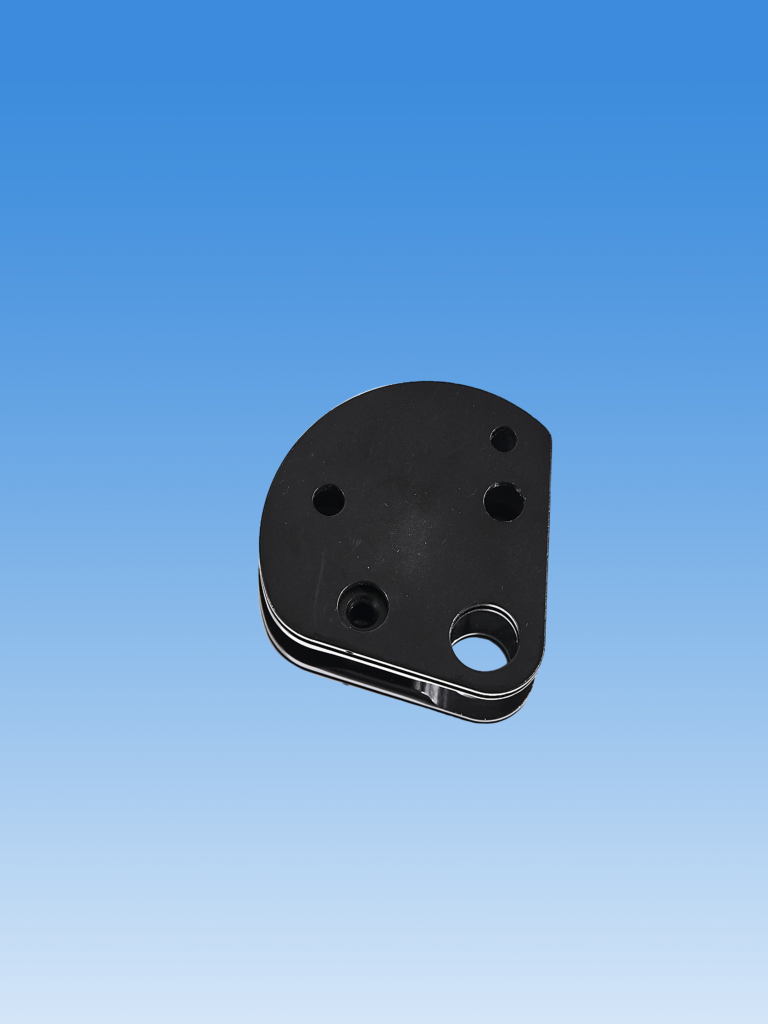Introduction
The ISO 4042 standard, established by the International Organization for Standardization (ISO), is a technical specification for electroplated coatings on fasteners. It is widely used in mechanical manufacturing, the automotive industry, aerospace, electronics, and precision engineering. This standard defines the types of electroplated coatings, performance requirements, inspection methods, and applicable conditions to ensure that fasteners exhibit excellent corrosion resistance and reliable mechanical performance under various environments. This article explores the application of the ISO 4042 standard in precision fasteners, including its significance, electroplated coating types, quality control requirements, and future development trends.
Ⅰ. Importance of ISO 4042 Standard
- Improving Corrosion Resistance of Fasteners
Precision fasteners are often exposed to high humidity, high temperatures, or chemical environments, making them prone to oxidation and corrosion. The ISO 4042 standard regulates different types of electroplated coatings (such as zinc, nickel, and chromium plating) to provide effective corrosion protection and extend the service life of fasteners in harsh environments.
- Ensuring Mechanical Performance of Fasteners
Besides corrosion protection, the mechanical strength, torque coefficient, and friction characteristics of fasteners are also influenced by electroplated coatings. The ISO 4042 standard specifies the impact of different electroplating processes on fastener performance and requires rigorous inspection and quality control during application to ensure compliance with functional requirements.
- Standardization for Global Compatibility
The ISO 4042 standard provides a unified technical specification for fastener manufacturers and users worldwide, allowing for interchangeability of fasteners produced in different regions and enhancing product compatibility and market competitiveness.
Ⅱ. Types of Electroplated Coatings in ISO 4042 Standard
- Zinc Coating
Zinc coating is the most common type in the ISO 4042 standard and is available in three main forms:
- Standard Zinc Plating: Suitable for general industrial applications, cost-effective but with moderate corrosion resistance.
- Electroplated Zinc: Provides a smooth and aesthetically pleasing surface with good corrosion resistance, widely used in the automotive, appliance, and electronics industries.
- Hot-Dip Galvanizing: Forms a thicker zinc layer with enhanced corrosion resistance, ideal for outdoor and heavy-duty industrial applications.
- Nickel Coating
Nickel plating offers high wear resistance and corrosion protection, making it suitable for high-strength and long-lasting fasteners used in aerospace and precision equipment. Nickel coatings also enhance the aesthetic and surface smoothness of fasteners.
- Chrome Coating
Chrome plating provides exceptional corrosion resistance along with high hardness and wear resistance. It is commonly used in applications requiring high mechanical strength and superior surface finish, such as automotive engines, precision instruments, and high-end machinery.
- Other Special Coatings
- Dacromet Coating: Offers excellent corrosion resistance and is suitable for high-temperature and high-humidity environments.
- Zinc-Nickel Alloy Coating: Provides superior corrosion protection compared to traditional zinc plating, making it suitable for the automotive and aerospace industries.
- Phosphate Coating: Enhances adhesion for further coatings or paint applications and is often used as a pre-treatment.
Ⅲ. Quality Control Requirements in ISO 4042 Standard
- Thickness Inspection
ISO 4042 specifies minimum thickness requirements for different coatings to ensure corrosion resistance and mechanical stability. Common measurement methods include:
- X-ray Fluorescence (XRF)
- Electrolytic Stripping
- Metallographic Microscopy
- Corrosion Resistance Testing
To verify long-term performance in specific environments, ISO 4042 requires salt spray testing to simulate prolonged exposure to corrosive conditions and evaluate the protective effectiveness of the electroplated layer.
- Hydrogen Embrittlement Sensitivity Testing
Some electroplating processes may cause hydrogen embrittlement, affecting the mechanical properties of high-strength fasteners. ISO 4042 specifies hydrogen embrittlement relief treatments to minimize the risk of breakage and ensure fastener safety.
- Friction Coefficient Control
The friction coefficient of fasteners directly impacts torque control and preload stability. The ISO 4042 standard defines lubrication properties and friction coefficient ranges for coated fasteners to ensure reliable assembly performance.
Ⅳ. Application Cases of ISO 4042 Standard
- Automotive Industry
ISO 4042 is widely used in the automotive sector for fasteners such as engine bolts, chassis screws, and door hinges. High-performance coatings enhance fastener durability and reduce maintenance costs.
- Aerospace Industry
The aerospace sector demands high-quality fasteners with extreme corrosion resistance and mechanical strength. Nickel, chrome, and zinc-nickel alloy coatings are commonly applied to ensure reliability in critical aerospace applications.
- Electronics and Electrical Equipment
Miniature fasteners in the electronics industry often use nickel plating or phosphate coatings to improve conductivity and prevent corrosion, ensuring stable electrical connections.
Ⅴ. Future Development Trends
- Eco-Friendly Electroplating Technologies
With stricter environmental regulations, traditional electroplating methods containing chromium or lead are being replaced by environmentally friendly coatings, such as chrome-free passivation and eco-friendly Dacromet alternatives.
- Nano-Coating Technology
New nano-coatings offer superior corrosion resistance and mechanical properties, which are expected to be widely adopted for high-end precision fasteners.
- Smart Inspection and Automated Production
Future developments in automated inspection technology and smart manufacturing will enable real-time monitoring and quality control during fastener production, improving efficiency and consistency.
Ⅵ. Conclusion
The ISO 4042 standard plays a critical role in the precision fastener industry by providing guidelines for corrosion resistance, mechanical strength, and quality control. By selecting appropriate electroplated coatings, optimizing inspection processes, and adopting new technologies, fastener manufacturers can ensure compliance with international standards and enhance their market competitiveness. As environmental regulations evolve and material science advances, the ISO 4042 standard will continue to shape the future of electroplated fasteners across various industries.


